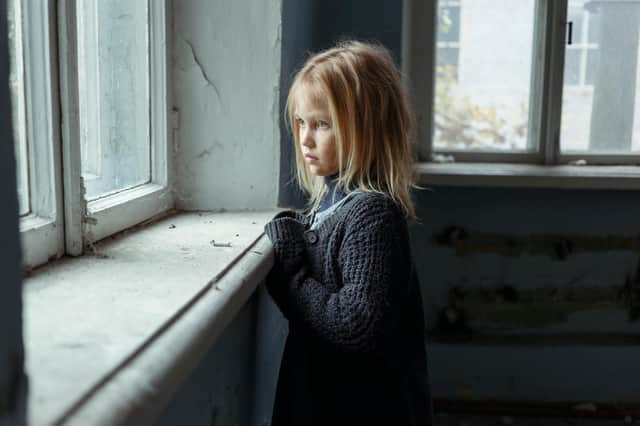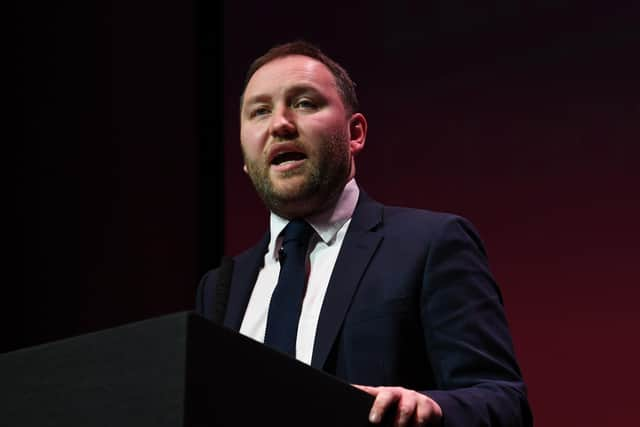SNP, Tories and Labour embroiled in blame game over rising child poverty rates in Edinburgh


Analysis published on Wednesday by the End Child Poverty Coalition showed a sharp rise in child poverty in Britain over the last five years - with 400,000 more children living in poverty after housing costs than in 2015.
In Edinburgh, a total of 14,763 children were living in poverty in 2019/20, according to the new figures – a 12.3 percent increase since 2014/15.
Advertisement
Hide AdAdvertisement
Hide AdIn some parts of the city like Moredun and Muirhouse, nearly a quarter of children are living in poverty.


Murray MP, said: “These figures are shocking and heart breaking. Both the Tory and SNP governments have presided over a staggering increase in child poverty, and ministers should hang their heads in shame.
“Boris Johnson’s record is one of rising poverty, soaring food bank use and a widening attainment gap, while the SNP is so distracted by its obsession with independence it has taken its eye off the ball when it comes to tackling poverty. Edinburgh’s poorest children are being failed by two governments playing the blame game.
“We now need a revision of Scotland’s child poverty strategy in the coming parliament to recognise the steep rise in child poverty.
“Labour will always make tackling child poverty a top priority, and work to ensure that our country is the best possible place to grow up in for all children.”
And speaking on behalf of members of End Child Poverty, John Dickie, director of the Child Poverty Action Group in Scotland, said that solid foundations have been laid in Scotland for future progress on child poverty with the introduction of the Scottish child payment and an increasing focus on action at local level including in Edinburgh.
But he insisted that the new data will challenge the Scottish government at all levels to use every power they have to boost family incomes and reduce the costs that struggling parents face.
He said: “The new Scottish parliament must act on election promises and make tackling child poverty its top priority. The cross party commitment to at least doubling the Scottish child payment needs to be implemented as a matter of utmost urgency in order to help meet the 2023/24 targets. But child poverty also needs to be a priority at local level. Local powers, including over economic development, housing and welfare, must be used to maximum effect to ensure all families have a disposable income fit for giving children a decent start in life.
Advertisement
Hide AdAdvertisement
Hide Ad“The figures speak for themselves – the situation for children couldn’t be starker. We all want to live in a society where children are supported to be the best they can be, but the reality is very different for too many. The UK Government can be in no doubt about the challenge it faces if it is serious about ‘levelling up’ parts of the country hardest hit by poverty. After the year we’ve all had, they owe it to our children to come up with a plan to tackle child poverty that includes a boost to children’s benefits. And they need to scrap plans to cut Universal Credit given parents and children are having a tough enough time as it is.”
But a spokesperson for the First Minister hit back at the Labour MP in a fiery response, saying: “We’ll take no lectures from Labour on this issue given that they are happy to leave key policies over child poverty in the hands of Boris Johnson’s Tories at Westminster.
“With the limited powers we currently have, the SNP Government is taking decisive action, and child poverty levels in Scotland are lower than in England and Wales.
“We have introduced the Scottish Child Payment, which is unique in the UK and has been described as ‘game-changing’ in the fight against child poverty. This payment, worth £40 every four weeks, is already reaching thousands of families on low incomes – and we are working to deliver it to all eligible children under 16 by the end of 2022 as well as doubling the value of the payment by the end of this Parliamentary term.
“Overall, we are providing support worth about £5,000 by the time a child turns six through the Best Start Grant, Best Start Foods and Scottish Child Payment. The 2021-22 Scottish Budget commits further investment to tackle child poverty, including £100 million to support struggling families through new Pandemic Support Payments and £49.75 million for expanded free school meal support.
“These statistics highlight that, even before the pandemic began, the challenge of negotiating the UK’s welfare system has left many people in desperate need of help. The UK Tory Government must act now to match our action and commit to making permanent the £20 uplift to Universal Credit, and extend this to people on other benefits.”
A UK government spokesperson said: “Latest figures show that the number of children in absolute poverty has fallen by 300,000 since 2010.
“We are committed to supporting families most in need, spending billions more on welfare and planning a long-term route out of poverty by protecting jobs through furlough and helping people find new work through our Plan for Jobs. The UK Government has also provided an additional £14.15 billion in funding this financial year to the Scottish Government to tackle the pandemic. This is on top of the block grant and in addition to direct UK Government support to people and businesses in Scotland.”
A message from the Editor:
Thank you for reading this article. We're more reliant on your support than ever as the shift in consumer habits brought about by coronavirus impacts our advertisers.
If you haven't already, please consider supporting our trusted, fact-checked journalism by taking out a digital subscription.
Comments
Want to join the conversation? Please or to comment on this article.